After the excitement of last night’s
unexpected wind gusts, today was very tame, with only a very light breeze, a
warm one to boot.
It was a little overcast but a pleasant day nevertheless. On
this trip we wanted to visit as many harbours as we could that were new to us,
quite a challenge as we are now fairly familiar with this part of the world.
One such harbour was precisely 4 miles away, on the ‘mainland’ island of Fyn, a
town called Assens. There wasn’t much point sailing across as after I’ve
started the engine, I like to run it for a while to achieve working temperature,
usually 15 minutes or so and at 6 knots that would get us well on our way to
Assens, so we motored across.
Assens boasts a large harbour area and an
extensive marina, with the guest pontoon being the first one as you come in.
For the very first time, we saw that someone had realized that visiting boats
have to guess whether the width between the poles was wide enough for their
boats and here, they clearly sign each and every box. Fantastic – or at least
it would be had I noticed them as we came in, instead we did as we always do
and guessed, rightly that we had enough room and it was only later that I saw
the signs.
Never mind, the thought was there.
We were tucked away nicely by coffee time
and as the sun was now shining, we enjoyed our coffees in the sun, me half-
dressed to ensure adequate levels of vitamin D and there we remained until
lunch time, very pleasant indeed.
After lunch we set off to explore the town.
Having found the tourist office I can now tell you a little about Assens. It is
basically a market town, quite a wealthy one as the land hereabouts is good.
Moreover, it is not a long way across to the mainland ie Jutland and from
thence the town could trade with Germany and the Netherlands and beyond, with
ease. Apparently during the 17th Century there was a booming trade
in the export of bullocks from Denmark onwards and the customs house became the
fourth largest in Denmark. Later on, as the world industrialised, so did Assens and it became
one of the first towns to have gas light and a rail links to the remainder of
Denmark. Today, it is a pleasant town with some old(ish) buildings, including a
fine church with a traditional hexagonal Scandinavian tower, the whole building
completed by 1488.
Sadly, there was a service or something happening so we
couldn’t see inside but what we did see was a cannonball, embedded in the
southern wall of the tower and dating from the civil war of 1535.
That was pretty much it for the day, by now
it had clouded over and it was spitting with rain, so we made our way back to
the boat. Julie made moussaka that evening, which we enjoyed with a glass or
three of retsina and caught up with iplayer, the series we are currently
enjoying, loosely based on the life of Stephen Poliakoff’s parents and called
‘Summer of Rockets’, thank you Cherry for recommending it.
- Just in posting photos, I should say that Peter Willemoes was killed in the battle of Zealand against the British in 1808. Prior to that, in the Battle of Copenhagen in 1801, at the age of 17 he was in command of a battery of 20 cannon and 150 men and during the battle he hooked his floating battery onto Nelson’s flagship, HMS Elephant and due to Elephant’s elevation, she couldn’t hit his battery but he could return fire. Nelson was so impressed that he later told Crown Prince Frederick that he ought to be made into an admiral, to which the prince responded ‘’if I was to reward all my men for their bravery, I would have a fleet of admirals’’

 Assens Havn, Denmark
Assens Havn, Denmark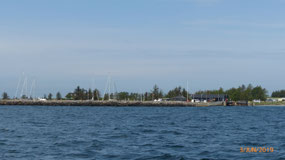
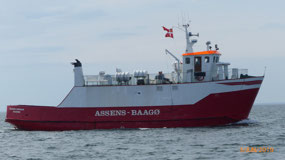
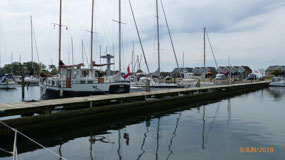


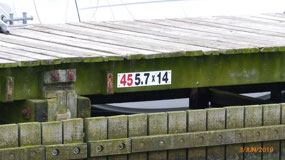
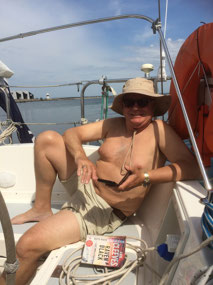
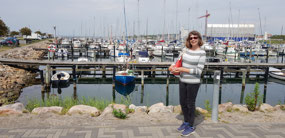

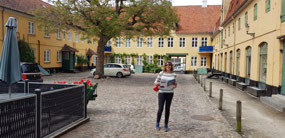
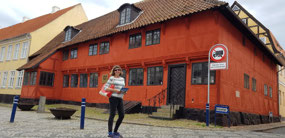
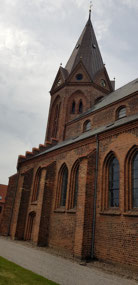
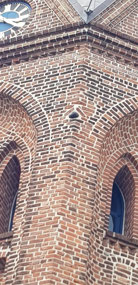
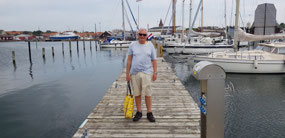
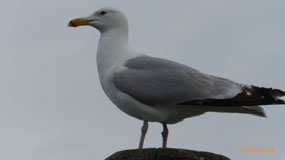
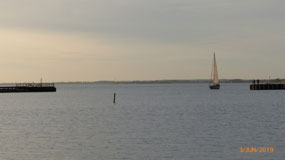
2025-05-23